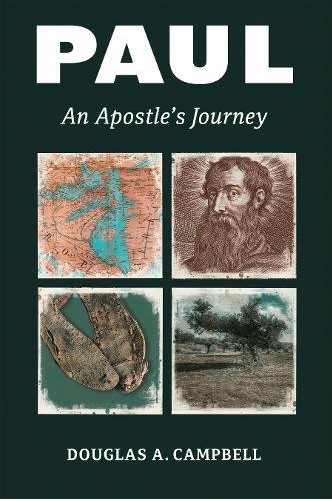 “How should we live?” That’s the question so many today want to ask Paul — and about as many answers as the numbers of those who ask him the question! There are tensions when one asks this question of Paul — he was after a Jew and a Jew would say “Obey the commands.” But many think that’s not what Paul would say. This question has been posed in a remarkably sensitive manner by James Thompson, at Abilene Christian University, in a book called Moral Formation according to Paul.
“How should we live?” That’s the question so many today want to ask Paul — and about as many answers as the numbers of those who ask him the question! There are tensions when one asks this question of Paul — he was after a Jew and a Jew would say “Obey the commands.” But many think that’s not what Paul would say. This question has been posed in a remarkably sensitive manner by James Thompson, at Abilene Christian University, in a book called Moral Formation according to Paul.
What role does the Torah play in your understanding of spiritual formation? Which of the five approaches (the second listing of five items below) best captures Paul’s ethics? Or do you think it is the Torah?
Here are some of those tensions:
1. “Paul’s moral instruction has been a problem for those who place the doctrine of justification by faith at the center of his thought” (4). Thompson pulls to the fore the classic set of categories from Bultmann: the indicative (who we are in Christ) shaped the imperative (what we are to do), but Thompson says this covers only some of Paul’s commands for his churches. Thompson’s right. Anyone who struggles with why Paul gave commands is failing to understand Paul’s theology.
2. Paul “insists that believers conduct themselves ‘worthily of the gospel’… but he gives no comprehensive ethical theory to guide their conduct” (5).
3. Paul wants the believers to be different from the world, but what is different about Paul’s ethics? Are there things here not found in Hellenistic Judaism or in the Old Testament?
4. Paul both informs his readers they are not under the law (Rom 6:14) but tells them to “keep the commandments” (1 Cor 7:19). Much of what he says, in other words, sounds like Torah.
5. Paul shows extraordinary pessimism for moral behavior apart from Christ and extraordinary optimism for those who are in Christ.
Yet, Thompson knows that many today — Christian theologians in particular — don’t want Paul to be offering a Torah-shaped set of ethics. So there are a number of approaches to Paul’s sources:
1. Some see his sources in typical Greek and Roman (and Jewish) moral traditions. That is, folks like Dio Chrysostom or Plutarch or Musonius.
2. Some think Paul’s ethic is absolutely reduced and emerged from the command to love. Bultmann. Or Freedom. Strecker. Even in a situational framework. Robin Scroggs.
3. Yet others think it is all about guidance and discernment of life in the Spirit. Here he appeals to Udo Schnelle and Jimmy Dunn.
4. Some think what Paul wanted was for people to do what he did: imitate Christ.
5. Last he looks at Richard Hays’ proposal of three focal images: cross, community and new creation.
Thompson thinks each falls short and that there is no going forward until one understands the central place the Torah played in Hellenistic Judaism — Paul’s concerns, after all, are with Gentile converts to the gospel in the Diaspora. And in that location the Torah was very, very important, even if it wasn’t halakic and even if it didn’t often sound like the rabbis were to sound.
At the core of Hellenistic Judaism’s Torah teaching for converts and expectation of Gentiles is the Holiness Code of Leviticus 17–26, esp. Lev 18-20. There one finds the classic emphases of the Hellenistic Jews in forming an ethic that enabled them to cohere into a unity and to separate themselves from their immoral neighbors. We find very little of the ritual commands, an emphasis on big ideas like justice and love and care for the poor, and at the same time a major emphasis on sexual sins.















